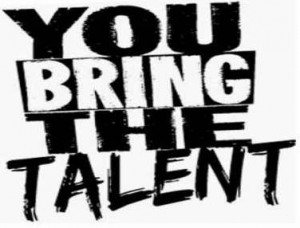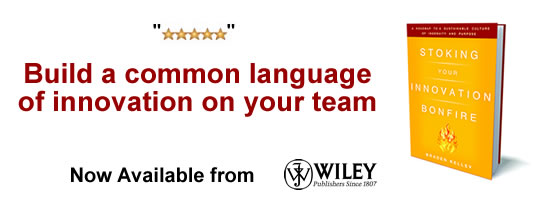Experiments in Talent Retention
 A fallacy about organizational management prevents many firms from getting the best out of their best people: the notion that everyone who excels in their jobs will eventually become managers, directors, etc. True, some may have a talent for management, while others flourish in active roles that have nothing to do with managing.
A fallacy about organizational management prevents many firms from getting the best out of their best people: the notion that everyone who excels in their jobs will eventually become managers, directors, etc. True, some may have a talent for management, while others flourish in active roles that have nothing to do with managing.
Yet, the “up or out†paradigm that exists in the corporate world cripples the growth trajectory – and a life of mastery that adds value to the firm – of key talent who simply love what they do.
So many companies accept this status quo assumption unthinkingly. Certainly there are exceptions, but they seem too few. We decided to experiment at the Southern Growth Studio.
Many of our best producers have no intention of formally managing. Several innovation practitioners in particular plan to “do the work, get deeper into it, rather than talk about it to death.” As managing partner, I look at them as expert craftspeople and we are blessed (as we say down here) to have them on the team.
The most critical factor is that they, the experts, manage themselves. Account teams use their skills to set a project framework and scope, a budget and to handle client relationships, but do not directly manage these specialists.
To retain this talent, we are developing career paths that include no expectations of management for growth at the firm. Furthermore, we are willing to provide economic incentives for continued service at a high performance rate, including phantom equity, bonuses and generous commission for work they bring into the Studio. These experts are offered ongoing training of their choosing.
Finally, while management and leadership are worthy and noble roles in the health of an organization, it is in our culture to have a very flat structure, which helps stimulate collaboration and innovative thinking in all we undertake. We need rarified skills and passionate talent obsessed with the work itself to create world-class work.
Everyone can chart their own career path, either as an expert craftsperson or a manager. The pay scale is the same if not slanted in favor of the really expert craftspeople. Talent is harder to find than a trained manager.
As the globe moves further away from the Industrial Revolution and deeper into the Creative Economy, the question of how we remunerate our specialists is an issue every organization will have to answer. In the Creative Economy, talent is the highest currency.
If you have any experience you can share, please do. We are eager to learn more about this emerging paradigm of work.
Wait! Before you go.
Choose how you want the latest innovation content delivered to you:
- Daily — RSS Feed — Email — Twitter — Facebook — Linkedin Today
- Weekly — Email Newsletter — Free Magazine — Linkedin Group
 Michael Graber is the co-founder and managing partner at Southern Growth Studio, a Memphis, Tennessee-based firm that specializes in growth strategy and innovation. A published poet and musician, Graber is the creative force that complements the analytical side of the house. He speaks and publishes frequently on best practices in design thinking, business strategy, and innovation and earned an MFA from the University of Memphis. Follow Michael @SouthernGrowth
Michael Graber is the co-founder and managing partner at Southern Growth Studio, a Memphis, Tennessee-based firm that specializes in growth strategy and innovation. A published poet and musician, Graber is the creative force that complements the analytical side of the house. He speaks and publishes frequently on best practices in design thinking, business strategy, and innovation and earned an MFA from the University of Memphis. Follow Michael @SouthernGrowth
NEVER MISS ANOTHER NEWSLETTER!
LATEST BLOGS
Three things you didn’t know about credit cards
Photo by Ales Nesetril on Unsplash Many of us use credit cards regularly. From using them for everyday purchases to…
Read MoreFive CV skills of a business-minded individual
Photo by Scott Graham on Unsplash The skills listed on a CV help employers quickly understand your suitability for a…
Read More


